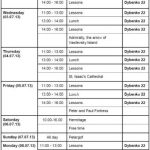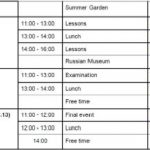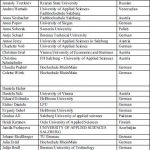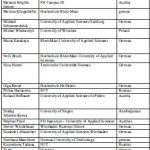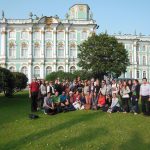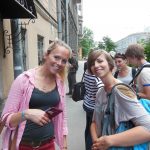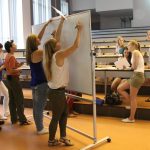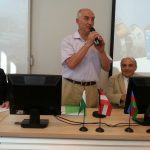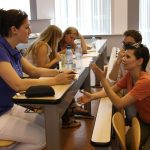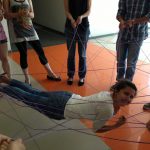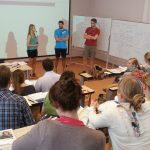Summer University 2013 ST. PETERSBURG
July 1 - July 9
Participants
We had app. 100 applications. Half of them got lost.
Some of them had problems with payments, some with visa.
The participants came from different countries:
Teaching Staff
Ingrid Bergner

-
Study: English, Philosophy, Education and Psychology
-
Mag. in Education (University of Klagenfurt)
-
Ph.D. in Cultural and Social Sciences: “Internet Communication and Practices of Scientists in the Academic World. An Intercultural Approach” (Distance Teaching University Hagen)
Position
-
Freelance researcher
-
University lecturer (Danube University Krems, University of Innsbruck)
-
Teacher at the Abendgymnasium für Berufstätige in Innsbruck Several publications on cultural communication and blended learning issues
Elisabeth Holoubek
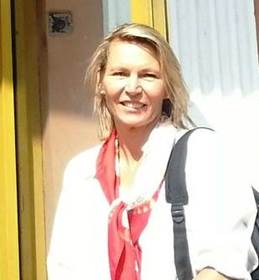
Vienna, Austria / Sweden
Elisabeth Holoubek was born in 1961 in Helsinki, Finland. She studied Business Informatics at the University of Vienna in Austria and graduated with a master degree in 1988.
After 20 years’ experience in the IT branch as a Software Engineer and Project Manager at Siemens she began with two postgraduate MBA studies with the Specializations in ‘Project & Process Management’ (graduation with distinction) as well as ‘Banking’ at the WU Executive Academy of the Vienna University of Economics and Business.
Since April 2012 she is CEO of Atim One GmbH and works as a Management Consultant with main focus on Project Management.
Johann Günther
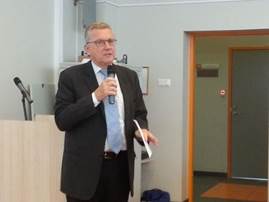
Professor at: Danube University Krems, Austria, Bonch-Bruevich Saint Petersburg State University of Telecommunications, Russia and Jianghan University, Wuhan, China
Doctorate (PhD) in 1974 at University in Vienna in Communication Science, Two terms in Cambridge.
Many years in management positions in industry like marketing manager with Philips, „DATEX-Technical Development Corp.“ Frankfurt, Germany, export director for Central- and Eastern Europe and Latin America. Alcatel Headquarters in Paris with the responsibility for Latin America and Europe, development of the distribution network of Alcatel in Eastern Europe, foundation of 12 companies with nearly 100 subsidiaries (Kazachstan to Hungary)
1979 – 1996
lectures at the University of Vienna „Department for Journalism and Communication Science“ with main emphasis on new communication technologies
1996 – 2004
head of the „Department for Telecommunication, Information and Media“ at Danube University, Austria, 1999 – 2004 Vice-President
2004 – 2007
Executive Director University of Applied Sciences St.Poelten
2007 – 2010
Agency for European Integration, Prishtina, Kosovo, Project manager, development of University System
From 2010
vice chancellor University of Buraimi
Publications: 50 books, some in up to seven languages, participation in more than 60 compendiums, more than 200 articles in specialist journals
Organisational Staff
The organization was done by
-
EVGENIYA NOVIKOVA from the side of SUT
-
Johann Günther for EATA
The afternoon programs and excursions for students were organized by students from SUT.
For the seminar rooms there was staff from SUT: technician for technical equipment, general seminar room subjects, etc
Modules
Intercultural Studies
Dr. Ingrid Bergner
University of Innsbruck, Austria
COURSE DESCRIPTION:
Objectives
The course focusing on multicultural competencies and communication will provide students with a variety of sources on theory and skills of intercultural communication, understanding and overcoming cultural differences. Moreover, they will learn how different models and methods of communication psychology can be used as an effective tool for intercultural communication issues in order to build highly effective bridges to other cultures, to establish common ground as well as mutual understanding.
Content
-
Developing new skills and intercultural competences: cultural contact and interfacing with others
-
Experiencing the nature of language and nonverbal communication, intercultural communication and conflict management, decision-making, problem solving in global teams
-
Demonstrating and discussing different models, methods and examples of intercultural communication and how they can be used as an effective tool for intercultural issues
-
Developing skills on effective presentation in global teams, effective dealing with stereotypes, and effective cooperation in multicultural teams; diversity management
-
Applications of Hofstede’s cultural dimensions
Methods
Lecture and discussion, group activities, role play activities, video analysis, case studies
Project Management
Elisabeth Holoubek
Course description:
Objectives
The course is about the Project Management Methods and Processes. The main part of the course, Project Management Methods, covers e.g. the Project Assignment, Project Objectives Plan, Project Objects of Consideration, Work Breakdown Structure, Work Package Specifications, Project Milestone Plan, Bar Chart, Project Environment Analysis, Project Organization Chart, Minutes of Meeting, Project Close Down Report and Lessons Learned. During the course students will apply project management methods with a training project in groups of 4-6 students. For documentation purpose they will create a ‘Project Handbook’ while experiencing teamwork and playing different roles in a project. The second part of the course is about the design and methods of the project management process and its sub-processes: project start, project controlling and project close-down. In order to enable students to get an even better insight into this topic, the students will have the chance to learn some basic things of one of the project management methodology, named PRINCE2. Last but not least: Social competence is of increasing importance for project managers. Projects as they are temporary and dynamic especially require social competence, which can be seen as the basis to fulfill the leadership tasks.
Content
-
Project Management Methods (theory and practice, 4 days)
-
Project Management Process: Start, Controlling and Close Down of a Project (2 days)
-
PRINCE2: a process-driven project management method (½ day)
-
Social Competence (½ day)
Production of a Film about Summer University
The students will have the chance, to learn theoretically about communication technologies and rules of journalism. But they also can work with new media by themselves. They will produce own TV- and radio clips.
The group will visit newspapers, television studios and other media companies.
In parallel they will produce a film about Summer University Prishtina
Excursions
Students from SUT were responsible for organizing excursions for the students.
Nearly every afternoon another excursion took place.
There were 2 bigger events:
-
Trip by boat to Peterhof – a full day excursion at the weekend
-
Trip by boat in St.Petersburg in the second week at late afternoon
Beside this students visited several times the city, the Emeritage, monasteries, etc

